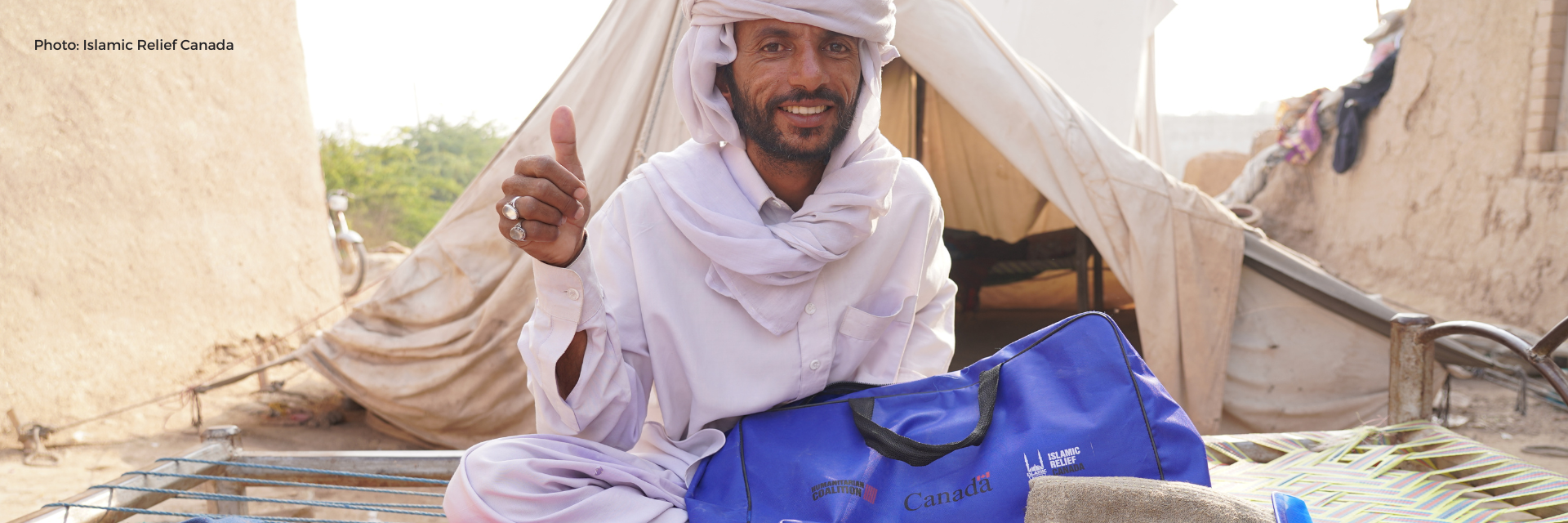
Weathering the storm
In the summer of 2022, Pakistan experienced three times more rainfall than average for monsoon season. Flooding and landslides destroyed homes, crops, health centers, roads and bridges across various regions of the country, including the Dera Ismail Khan district, where Muhammad Tauqeer, a 35-year-old local farmer, lives with his family.
In his village of 600 houses, 200 were destroyed. Most residents of the village now live under the open sky in tents, with insufficient food and warm clothes, and are facing health issues.
Muhammad lost his house and his land when the torrential rainfall inundated his village. Since then, he has been working as a daily wageworker to cover the expenses of his family, as his mother, three brothers, and sister all depend on his daily income. He works six days a week, from 6am to 5pm, and earns approximately 300-500 PKR ($1.7 to $3 CAD) each day.
Muhammad regrets the loss of his land and home. "I used to be a farmer, working on my own land but now I work as unskilled labour. The weekly income that I get hardly covers our daily household needs. I cannot rebuild my house with the meagre income."
The arrival of winter and cold weather is an additional source of distress. While those with resources are rebuilding their houses, Muhammad's only option for now remains his tent: "I don't have finances to rebuild my house and the cold weather is adding to my miseries."
Thankfully, Islamic Relief, supported by the Canadian government and the Humanitarian Coalition, began providing emergency assistance in the form of cash grants, food supplements, hygiene kits, and psychological support in his community.
The assistance will enable Muhammad's family to meet their basic needs, while they continue to work to rebuild their lives.